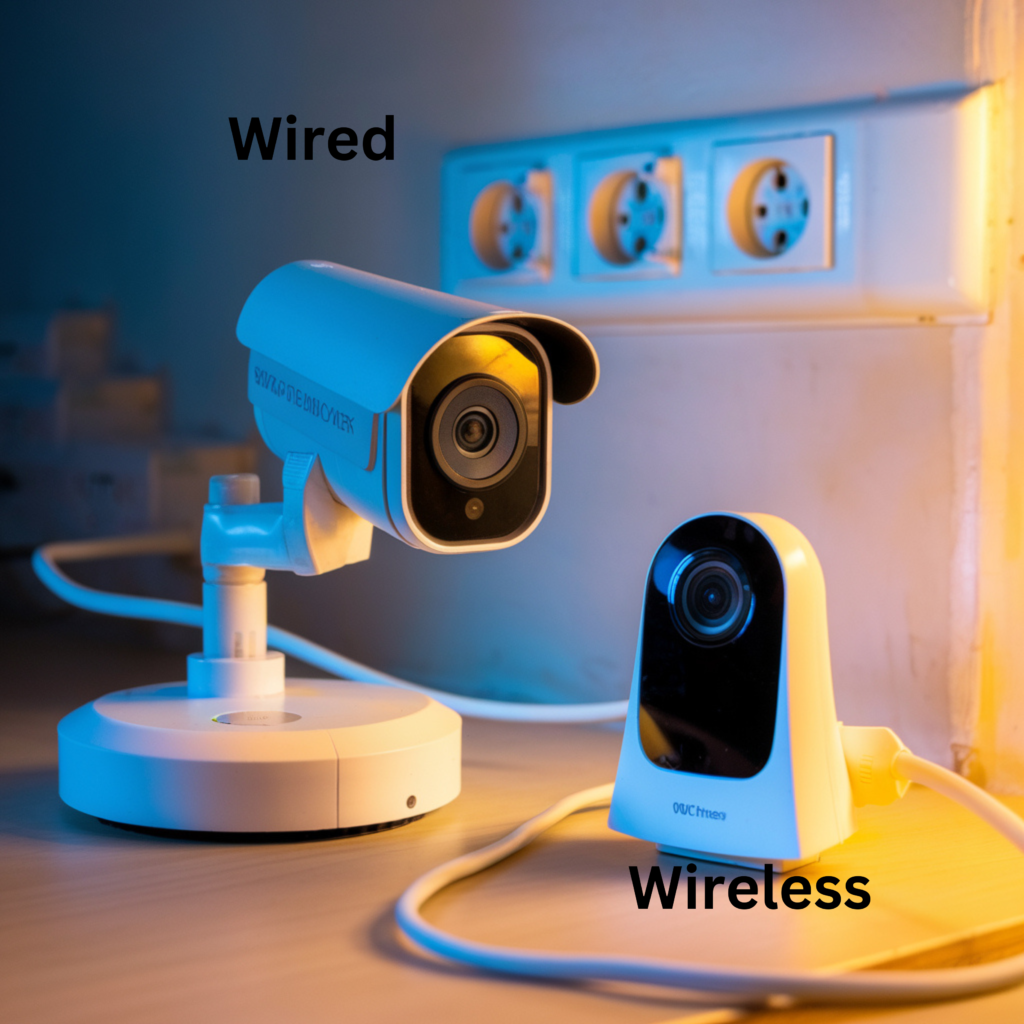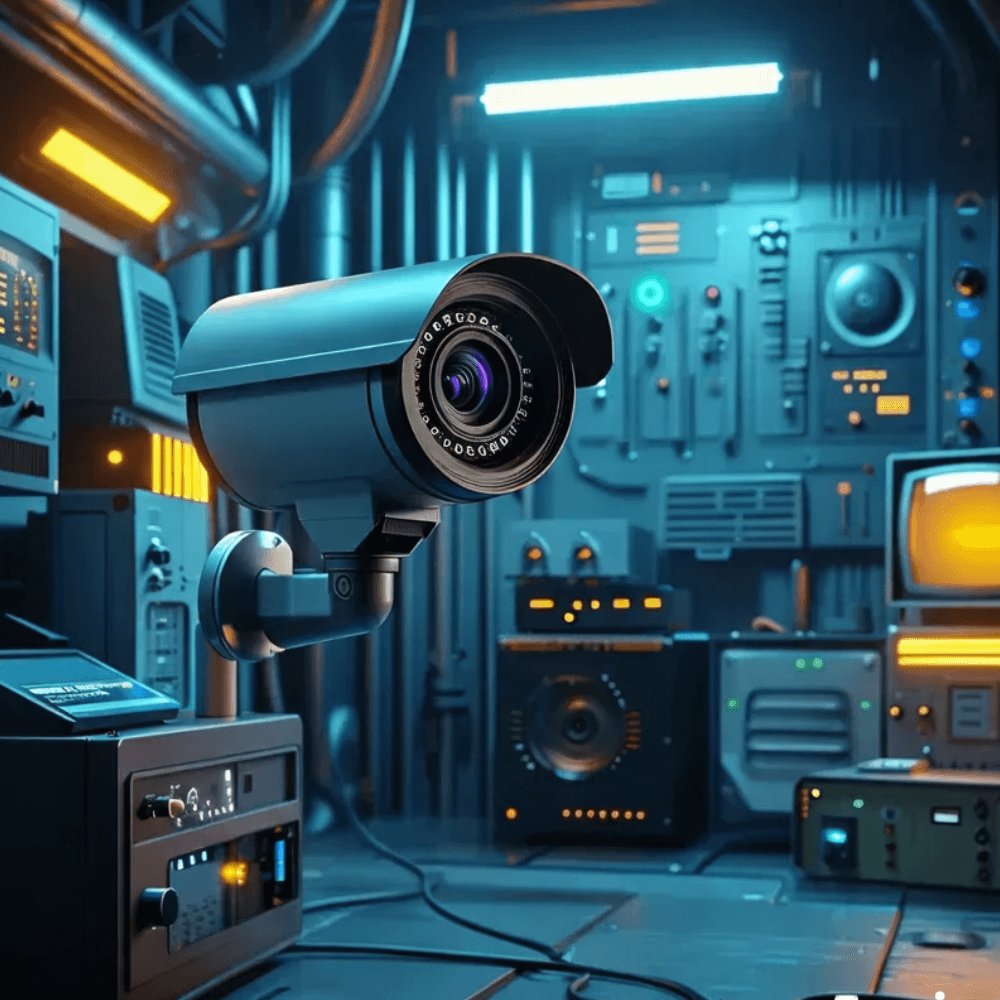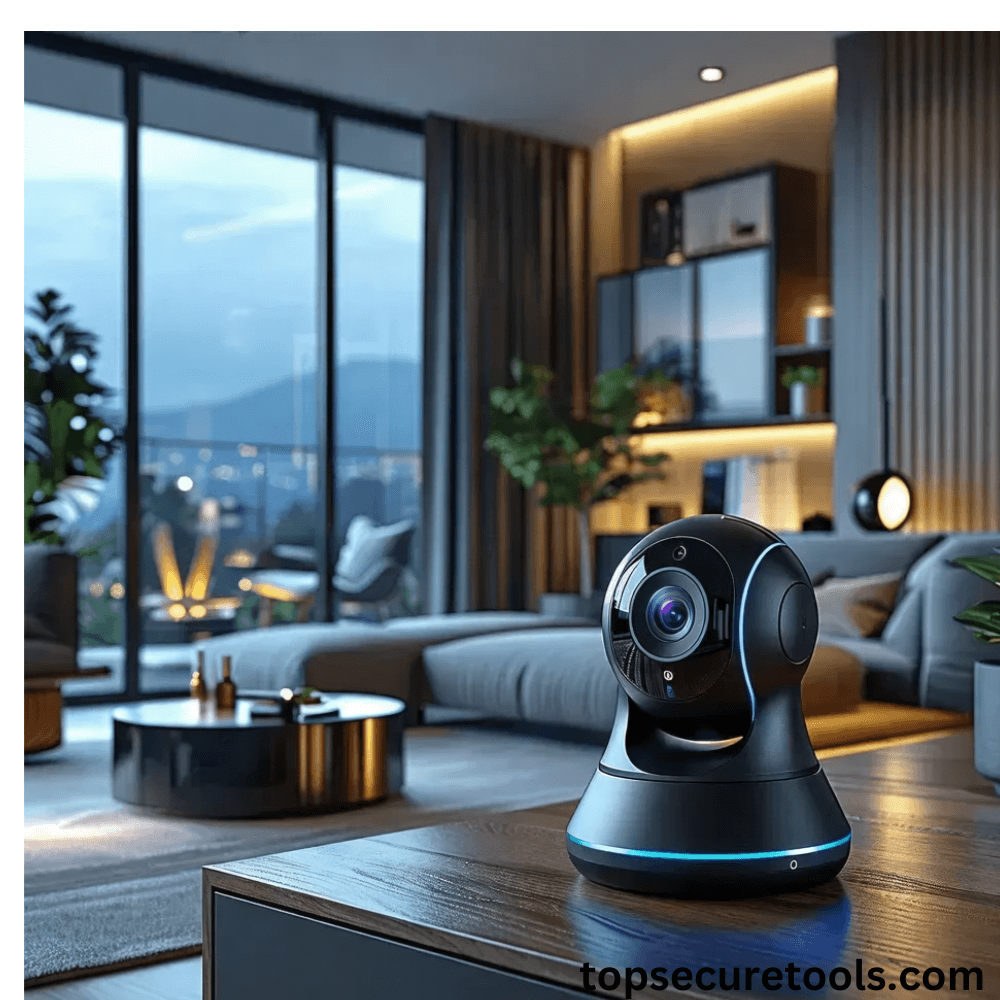Wired CCTV cameras are widely considered more secure and reliable than wireless cameras due to several key factors. One major advantage is their stability, as wired systems are not affected by Wi-Fi signal interference, network outages, or physical obstructions that can disrupt wireless connections.Some home and business owners are switching back to Wired security camera again, because they want long lasting security, Additionally, wired cameras are less vulnerable to hacking since they are not directly connected to the internet, unlike wireless cameras, which can be targeted through weak passwords or outdated firmware. A 2021 report by Palo Alto Networks found that 57% of IoT devices, including many wireless cameras, are susceptible to cyberattacks due to poor security measures. Furthermore, surveys like the one conducted by TechRadar in 2023 revealed that 68% of users prefer wired systems for critical security applications because of their reliability and privacy. Wired cameras also deliver better video quality and performance, supporting higher resolutions and frame rates without latency issues, making them ideal for high-security environments.

I have been in the security business offline for 9 years. Wireless security cameras are better but wired systems are much more reliable. I am working with security experts and know from them and my own experience understand, know, and see security experts suggest Wired security systems because they take less time to install and also service calls. Security experts say that wireless security system batteries last 3 to 5 years which is a lot of nonsense! With a wired system, you will only have 1 main battery to replace. Wireless systems are great for renters because the renter can take the system with them when they leave.
I have recommended to my relatives and those who have asked me to get entrance doors, motion detectors, glass-break detectors, and smoke detectors as wired devices.
Below is a table comparing the advantages and disadvantages of wired and wireless security cameras. This format allows for a clear, side-by-side comparison to help readers easily understand the differences.

What Is a Wired Security Camera?
A wired security camera is a surveillance device that connects directly to a power source and a storage device using physical cables. These cameras typically utilize coaxial, CAT5, or CAT6 cables to transmit video data to a network video recorder (NVR) or digital video recorder (DVR) for storage and monitoring. This setup ensures a stable connection and continuous power supply, making wired cameras a popular choice for various security applications.

Advantages/Benefits of Wired Security Cameras
Wired security cameras come with several key advantages that make them a strong choice for surveillance. First, they provide a stable connection because they are directly connected to the network, which minimizes the risk of interference from other devices. This also means they can support higher video quality, offering clearer and more detailed images compared to many wireless options.
Another big benefit is their continuous power supply. Wired cameras often use Power over Ethernet (PoE) technology, which allows them to receive both power and data through a single cable. This eliminates the need for batteries, ensuring they can operate non-stop without frequent maintenance or recharging.
Additionally, wired systems are generally more secure. Since they don’t rely on Wi-Fi, they are less vulnerable to hacking and cyber threats. This makes them a reliable and long-term solution for those who prioritize security and stability in their surveillance systems.
Expert Opinions
Security experts often recommend wired systems for larger properties where multiple cameras are needed. The reduced risk of interference and hacking makes them a preferable choice for comprehensive surveillance solutions.
Disadvantages of Wired Security Cameras
Wired security cameras have many benefits, but they also come with some downsides. First, setting them up can be tricky and take more time because you need to run physical cables. Once they’re installed, it’s not easy to move them to a new spot. The upfront costs can also be higher since you need to pay for materials and possibly professional help to install the cables. Additionally, the number of cameras you can use might be limited by your existing wiring.
That said, wired cameras are a strong choice for places where you need reliable and secure surveillance. They provide high-quality video and stable connections without the risks that sometimes come with wireless systems. Still, it’s important to think about the challenges and costs before deciding if they’re the right fit for you.
What Is a Wireless Security Camera?
Wireless security cameras are closed-circuit television (CCTV) devices that transmit video and audio signals to a wireless receiver using radio frequencies. most wireless cameras still require at least one cable for power supply, typically connecting to a nearby outlet. These cameras can upload footage to cloud storage or local drives through Wi-Fi, making them versatile for various surveillance needs.

Advantages/Benefits of Wireless Security Cameras
Wireless security cameras offer several great benefits that make them a popular choice. First, they are very easy to install. Since they don’t need complicated wiring, you can set them up quickly, often in just a few minutes. They are also flexible and portable, meaning you can move them around easily if your needs change. This is especially helpful for renters or people who like to adjust their security setup often.
Another big advantage is remote access. Many wireless cameras let you view and control them through smartphone apps, so you can check on your property from anywhere. Adding more cameras to a wireless system is also simple and affordable because you don’t need to worry about running extra cables. Finally, many wireless cameras offer cloud storage, which lets you save and access your footage online without needing physical storage devices. These features make wireless cameras a convenient and versatile option for home or business security.
Expert Opinions
Security experts highlight that wireless cameras are ideal for temporary setups or smaller properties where mobility is essential. They also emphasize the convenience of remote monitoring features that enhance user experience.
Disadvantages of Wireless Security Cameras
Wireless security cameras have many benefits, but they also come with some drawbacks. One issue is their limited range. If the camera is too far from the router, the signal can weaken or drop, affecting performance. Walls, floors, and other obstacles can also cause interference, making the connection less reliable. Another concern is battery life. Many wireless cameras run on batteries, which means they need to be recharged or replaced regularly, adding to the maintenance.
Additionally, because wireless cameras connect to Wi-Fi, they can be more vulnerable to hacking if not properly secured with strong passwords and encryption. While wireless cameras are a convenient and flexible option, especially for easy installation and portability, it’s important to consider these limitations, such as range, battery life, and security risks, before choosing them for your surveillance needs.
FAQ | Common Questions of Wired vs Wireless Security Cameras
How does video quality compare between wired and wireless cameras?
Wired cameras usually provide better video quality than wireless ones. They have a stable connection, which means clearer images without interruptions. Wireless cameras can also deliver good quality, but their performance depends on Wi-Fi strength and can suffer from interference.
Is Wired Security Better?
Wired security cameras are generally considered better for reliability and security. They provide a stable connection and are less prone to interference or hacking compared to wireless options.
Does Wired CCTV Need Internet?
Wired CCTV does not necessarily need internet access to function. It can operate independently by recording footage locally on a DVR or NVR. However, internet access is required for remote viewing and notifications.
Can a Security Camera Work Without Wi-Fi?
Yes, a security camera can work without Wi-Fi if it is wired and records footage locally. However, without Wi-Fi, you won’t be able to access the footage remotely.
Does Wireless CCTV Need Wi-Fi?
Yes, wireless CCTV cameras typically need Wi-Fi to transmit video data. If the Wi-Fi connection is weak or fails, the camera may not function properly
